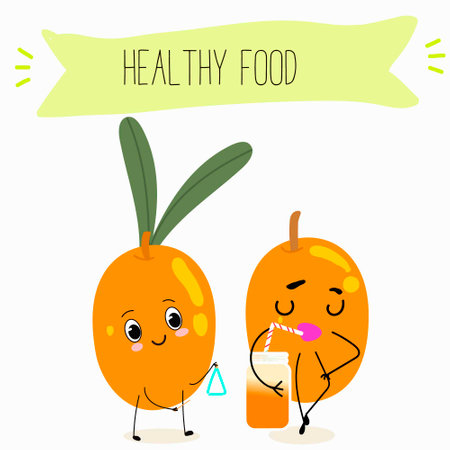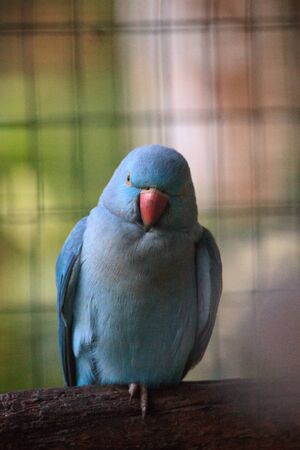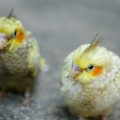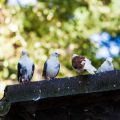Introduction to Bird Seed Mixes in the UK
Providing the right nutrition is vital for the health and happiness of pet birds, especially popular species in the UK such as parrots, canaries, and budgies. A well-balanced seed mix forms the foundation of a bird’s diet, offering essential nutrients that support feather quality, energy levels, and overall wellbeing. Unlike wild birds that forage for a wide variety of seeds and natural foods, pet birds rely on their owners to provide a diet that meets their specific nutritional needs. Choosing an appropriate seed mix is therefore crucial to prevent common health issues like vitamin deficiencies, obesity, or poor plumage. In the UK, where climate and lifestyle may affect available food options, understanding what makes a premium seed blend is key. This article explores the importance of selecting high-quality seed mixes tailored to your bird’s species, ensuring your feathered companions thrive in your home environment.
Understanding the Nutritional Needs of Parrots, Canaries, and Budgies
Ensuring your pet birds receive optimal nutrition is essential for their long-term health and well-being. Each species—parrots, canaries, and budgies—has unique dietary requirements shaped by their natural habitats and lifestyles. Understanding these differences is key to selecting the best seed mix for your feathered friends.
Specific Dietary Requirements
| Bird Type | Main Diet Components | Key Nutrients |
|---|---|---|
| Parrots | Seed mixes, fresh fruit, vegetables, nuts, formulated pellets | Protein, calcium, vitamin A, omega-3 fatty acids |
| Canaries | Specialised seed blends (canary grass seed, rapeseed), greens, egg food | Vitamin D3, calcium, protein, carotenoids |
| Budgies (Budgerigars) | Millet-based seed mixes, leafy greens, fruits, pellets | Iodine, vitamin A, calcium, balanced carbohydrates |
Common Health Considerations
Nutritional imbalances can lead to a range of health issues in pet birds. For example:
- Parrots: Prone to obesity if fed too many fatty seeds or nuts; require variety and vitamin A-rich foods to prevent deficiencies.
- Canaries: Sensitive to calcium deficiencies leading to weak bones; excess fat intake can result in liver problems.
- Budgies: Often suffer from iodine deficiency if not provided with fortified seeds or supplements; require a mix of seeds and fresh foods for digestive health.
The Importance of Varied Diets
A high-quality bird seed mix forms the foundation of your pet’s diet but should be complemented with fresh produce and occasional treats. This approach mimics their natural feeding habits and supports both physical health and mental stimulation.
Summary Table: Nutritional Focus Points by Bird Type
| Bird Type | Nutritional Focus Point |
|---|---|
| Parrots | Diverse sources of vitamins & minerals; avoid excess fat |
| Canaries | Adequate calcium & high-quality protein; avoid fatty seeds |
| Budgies | Iodine supplementation; maintain seed/vegetable balance |
Selecting a seed mix that reflects these requirements is vital for ensuring your bird thrives. In the following sections, we will explore how to identify quality seed mixes and what to look for on UK shelves.

3. Key Ingredients in Quality Bird Seed Mixes
When selecting the best bird seed mix for your UK pet birds, it’s essential to know what ingredients support their health and wellbeing. Quality mixes should contain a balanced combination of seeds, grains, dried fruits, and safe additives tailored to species such as parrots, canaries, and budgies. Below is a breakdown of these components and their benefits:
Essential Seeds and Grains
| Ingredient | Benefits | Suitable For |
|---|---|---|
| Millet (White/Red) | High in carbohydrates; easy to digest; energy source | Budgies, Canaries |
| Sunflower Seeds (In Moderation) | Rich in healthy fats; promotes feather health | Parrots, Budgies (sparingly) |
| Canary Seed | Protein-rich; supports muscle development | Canaries, Budgies |
| Safflower Seed | Low in saturated fat; good for heart health | Parrots, Canaries |
| Oats & Groats | Source of fibre and slow-release energy | All species |
| Niger Seed | High in oil content; enhances plumage quality | Canaries, Finches |
Dried Fruits and Vegetables
Dried fruits such as apple, currant, and berry pieces add natural sweetness and provide essential vitamins like Vitamin C and antioxidants. Dried vegetables such as carrot flakes or sweetcorn may be included for added nutrition. Always ensure dried fruits are sulphur-free and unsweetened to avoid unwanted additives.
Additives: Safe Supplements for UK Pet Birds
| Additive | Purpose & Benefits |
|---|---|
| Iodised Grit or Mineral Blocks | Aids digestion and provides trace minerals necessary for bone and feather formation. |
| Calcium Supplements (Crushed Oyster Shell) | Supports eggshell strength for breeding birds and bone health for all species. |
| Probiotics (Live Cultures) | Promotes digestive health and boosts immunity. |
| No Artificial Colours or Flavours | Avoid mixes with artificial additives that may cause allergies or digestive upsets. |
UK-Specific Considerations
Select mixes that suit the UK climate—avoid overly oily seeds that can spoil quickly in damp conditions. Opt for reputable British brands that prioritise freshness and quality assurance. Always check ingredient lists for locally sourced produce where possible to reduce food miles and support sustainability.
4. Top Recommended Bird Seed Mix Brands Available in the UK
Choosing the right bird seed mix can make a significant difference to the health and happiness of your pet birds. In the UK, pet owners benefit from a variety of high-quality brands that cater specifically to the dietary needs of parrots, canaries, and budgies. Below, weve reviewed some of the most trusted bird seed mix brands easily accessible at local pet shops and online retailers, reflecting local preferences for quality, traceability, and nutritional balance.
Leading Bird Seed Mix Brands for UK Pet Birds
| Brand | Suitable For | Key Features | Where to Buy |
|---|---|---|---|
| Tidymix | Parrots, Budgies | No artificial colours or flavours; balanced grains and pulses; UK-sourced ingredients | Pet shops, Amazon UK, Tidymix official website |
| Johnston & Jeff | Canaries, Budgies, Parrots | Traditional British brand; tailored mixes for each species; high-quality seeds with added vitamins | Pets at Home, independent pet stores, Johnston & Jeff website |
| Versele-Laga | Parrots, Canaries, Budgies | Premium European brand; scientifically formulated recipes; supports feather health and vitality | Online retailers (Zooplus UK), selected pet shops |
| Bucktons | Budgies, Canaries, Finches | Value for money; popular among breeders; vitamin-enriched blends made in the UK | Sainsbury’s, Pets at Home, online stores |
What Sets These Brands Apart?
The above brands are favoured by UK bird owners for their consistent quality control and commitment to avian wellbeing. Most offer mixes free from unnecessary fillers or artificial additives—a priority for health-conscious pet keepers. Additionally, many source their grains locally or from trusted European farms to ensure freshness and traceability.
Nutritional Standards and Local Preferences
UK-based brands often formulate their mixes according to British Avian Veterinary Association guidelines, ensuring a balanced intake of protein, essential fatty acids, vitamins, and minerals. For example, Tidymix is known for its transparency in sourcing and minimal use of sunflower seeds (which can be fattening if overfed), while Johnston & Jeff’s canary mixes are tailored to match the specific energy needs of active songbirds.
By choosing any of these recommended brands, you can be confident that your parrots, canaries, or budgies are receiving safe and nutritionally appropriate food that reflects both local expertise and the latest advances in avian nutrition.
5. Tips for Choosing, Storing, and Serving Bird Seed Mixes
Choosing the right seed mix for your pet bird is essential for supporting their health and happiness. Here are some practical tips tailored for UK bird owners to help you select, store, and serve seed mixes for parrots, canaries, and budgies.
How to Select the Right Seed Mix
| Bird Species | Key Ingredients | Avoid |
|---|---|---|
| Parrots (e.g., African Grey, Cockatiel) | Sunflower seeds (limited), safflower seeds, pumpkin seeds, oats, dried fruit pieces, nuts | High quantities of sunflower or peanuts (may cause obesity or aflatoxin risk) |
| Canaries | Canary seed, rapeseed, millet, linseed, small amounts of greens | Sugar-coated seeds or artificial colourings |
| Budgies | Millet (white/red/yellow), canary seed, small oats, dried herbs | Large seeds that are hard to crack; sweetened or salted additives |
What to Look For:
- Choose UK-manufactured or reputable brands with clear ingredient lists.
- Avoid seed mixes with artificial colours, added sugars, or preservatives.
- Check expiry dates and ensure packaging is sealed properly.
- Select species-specific blends for optimal nutritional balance.
Proper Storage Methods
- Store seed mixes in airtight containers to prevent moisture and pests.
- Keep seeds in a cool, dry cupboard away from direct sunlight.
- Avoid storing in the kitchen near heat sources or where condensation may occur.
- If buying in bulk, divide into smaller portions to keep the main supply fresh longer.
Recommended Storage Guide:
| Storage Method | Benefit |
|---|---|
| Airtight plastic or glass jars | Keeps out moisture and pests; preserves freshness |
| Ceramic containers with tight-fitting lids | No chemical leaching; keeps seeds cool |
| Original resealable packaging (if available) | Convenient and designed for freshness retention |
Serving Suggestions to Maximise Health & Freshness
- Serve only as much as your bird will eat in one day; discard uneaten seeds daily.
- Mingle fresh vegetables and fruits alongside seed mixes to boost nutrition.
- Clean food bowls daily with warm water and mild detergent; rinse thoroughly before refilling.
- If using sprouted seeds (great for enrichment!), rinse well before offering and avoid if mouldy.
- Observe your bird’s eating habits—adjust portions if they’re leaving certain seeds untouched.
By carefully selecting quality seed mixes tailored for your specific bird species and following best practices for storage and serving, you’ll help ensure your feathered friend enjoys a varied diet that supports their wellbeing all year round.
6. Common Mistakes and How to Avoid Them
Feeding pet birds in the UK the right seed mix can seem straightforward, but many owners fall into common traps that affect their bird’s health and happiness. Understanding these pitfalls is key to providing a balanced, nutritious diet for parrots, canaries, and budgies.
Over-Reliance on Seed Mixes
Many UK bird keepers depend solely on commercial seed mixes, which often lack essential vitamins and minerals. This can lead to nutritional deficiencies, especially in parrots who require a more varied diet.
Ignoring Species-Specific Needs
Not all pet birds have the same dietary requirements. Budgies, canaries, and parrots each need different nutrients and seed types. For example, high-fat seeds like sunflower are suitable in moderation for parrots but can cause obesity in smaller birds such as budgies.
Table: Common Pitfalls by Bird Type
| Bird Type | Common Mistake | Better Practice |
|---|---|---|
| Parrots | Too many sunflower seeds | Add fruits, veg, nuts in moderation |
| Canaries | Lack of green foods | Supplement with leafy greens daily |
| Budgies | Poor calcium intake | Offer cuttlebone or mineral blocks |
Poor Storage and Freshness Issues
Seed mixes stored improperly can develop mould or attract pests. Always keep seeds in an airtight container in a cool, dry place. Check expiry dates and avoid buying in bulk if you have few birds.
Lack of Dietary Variety
A monotonous seed-only diet fails to mimic what wild birds would eat. Incorporate fresh vegetables (such as broccoli, kale), some fruit (like apple or pear), pellets formulated for your species, and occasional protein sources (boiled egg for canaries or sprouted seeds).
Tips to Ensure a Balanced Diet
- Rotate between reputable UK bird food brands to ensure variety.
- Introduce new foods gradually to prevent digestive upset.
- Monitor your bird’s weight and feather condition for early signs of imbalance.
Avoiding these common mistakes will help you provide your pet birds with a healthy, enjoyable diet that supports their wellbeing throughout their lives.
7. Conclusion: Ensuring Your UK Pet Birds Thrive
Providing optimal nutrition is the cornerstone of keeping your pet parrots, canaries, and budgies healthy and happy in the UK. Selecting a high-quality seed mix tailored to each species’ dietary needs not only supports vibrant plumage, strong immunity, and active behaviour but also minimises the risk of common health issues such as obesity and malnutrition. As explored in this guide, choosing reputable brands, reading ingredient lists carefully, and considering seed freshness are essential steps for conscientious bird owners.
Key Tips for Supporting Bird Wellbeing
| Tip | Description |
|---|---|
| Species-Specific Mixes | Select seed blends formulated for your bird’s type (parrot, canary, budgie) to ensure balanced nutrition. |
| Freshness & Storage | Store seeds in airtight containers away from moisture and sunlight to maintain nutritional value. |
| Supplemental Foods | Incorporate fresh vegetables, fruit, and fortified pellets alongside seeds for variety and enrichment. |
| Regular Vet Checks | Schedule annual avian vet visits for health assessments and tailored diet advice. |
| Clean Feeding Area | Keep feeding dishes clean to prevent mould growth and bacterial contamination. |
Promoting Longevity and Joyful Companionship
A well-chosen bird seed mix is just one part of responsible pet care. By combining quality nutrition with mental stimulation, safe housing, and regular social interaction, you create an environment where your feathered companions can truly thrive. Whether you keep a talkative parrot, a melodic canary, or a playful budgie, investing time in their diet reflects your commitment to their lifelong wellbeing in the unique UK climate and lifestyle.


